Introducing Applied Activity Theory: A New Tool for Selecting Frameworks
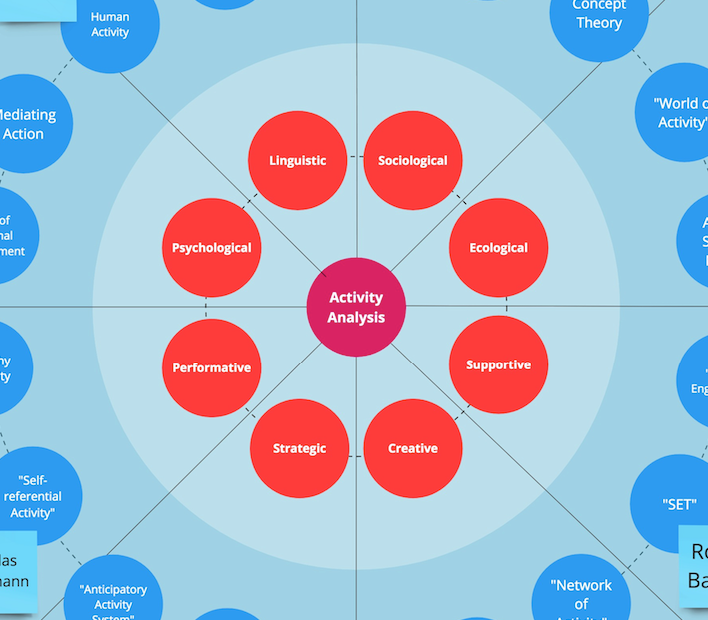
This post was originally published on August 31, 2024.
However, I decided to stop the Applied Activity Theory project in 2025.
I am excited to share that I have been working on a new tool designed to help select Activity-theoretical frameworks from an application perspective. This project, titled Applied Activity Theory, is centered around enhancing the ways we engage with and apply these frameworks.
1. Knowledge Value Circle
I have developed an eight-type typology that outlines different modes of concept-related knowledge engagement:
- Theoretical Integration
- Theory-building
- Frame for Research
- Methodological Empathy
- Knowledge Curation
- Programming Intervention
- Modeling the Project
- Thematic Exploration
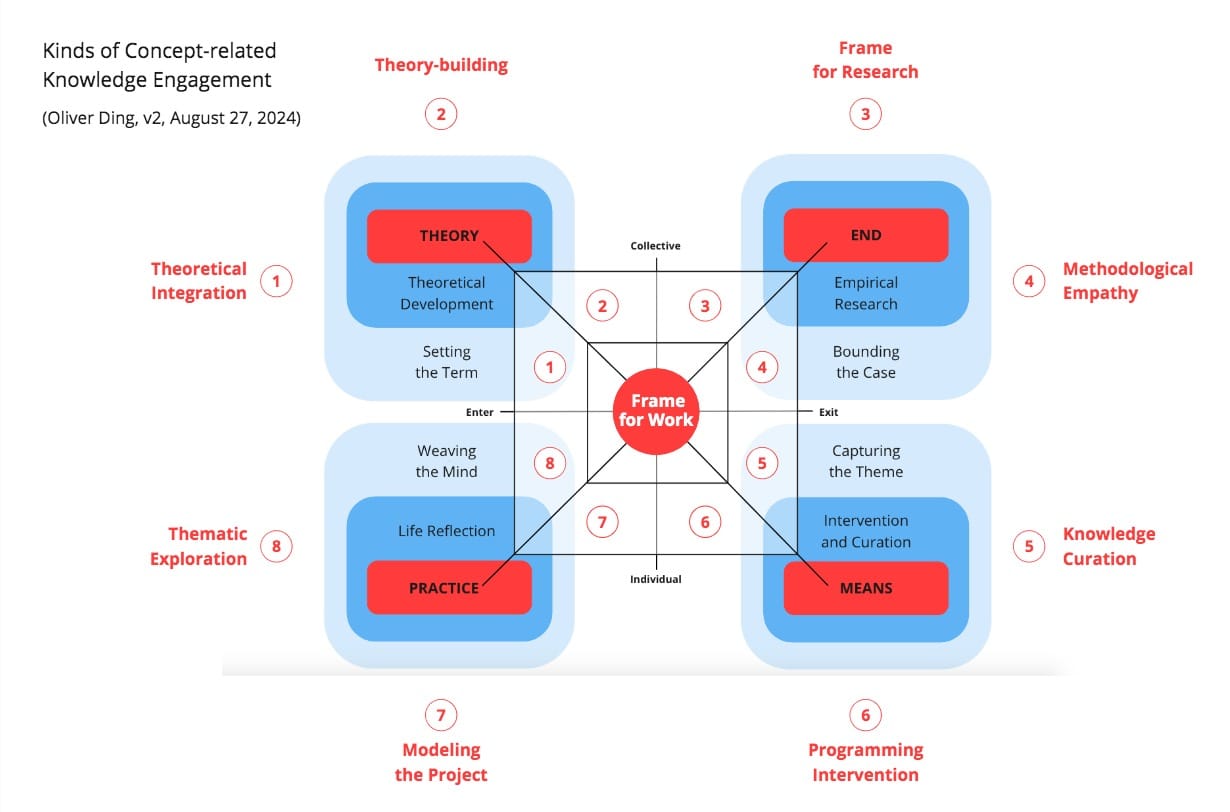
Each type is accompanied by specific resources and results, with the potential for results from one type to become resources for another, creating a dynamic knowledge value chain.
You can explore these types in more detail in this article: Kinds of Concept-related Knowledge Engagement.
2. The Landscape of Activity Analysis
From an application standpoint, I have curated a set of activity-theoretical frameworks alongside relevant social theories. These are organized using a "3A" framework—Aspirations, Approaches, Aspects—to guide the selection process:
- 24 Aspirations
- 18 Approaches
- 8 Aspects
Please refer to the attached diagram for a visual representation.
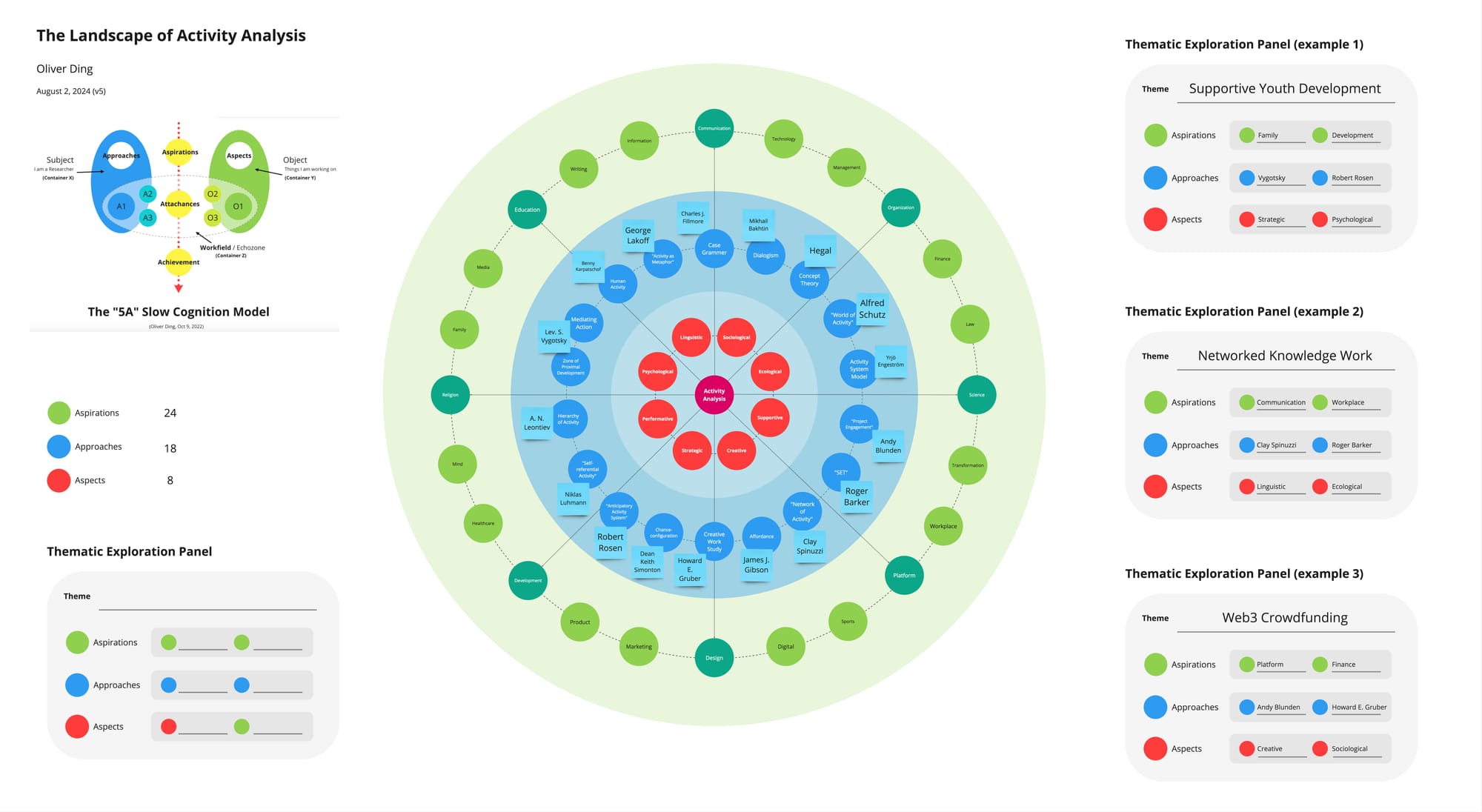
3. The "5A" Model
The 3A framework was inspired by the 5A Slow Cognition model, which serves as my primary research method.
I use the following five keywords to summarize my creative pattern that guides my independent research projects:
- Aspirations
- Aspects
- Approaches
- Attachances
- Achievement
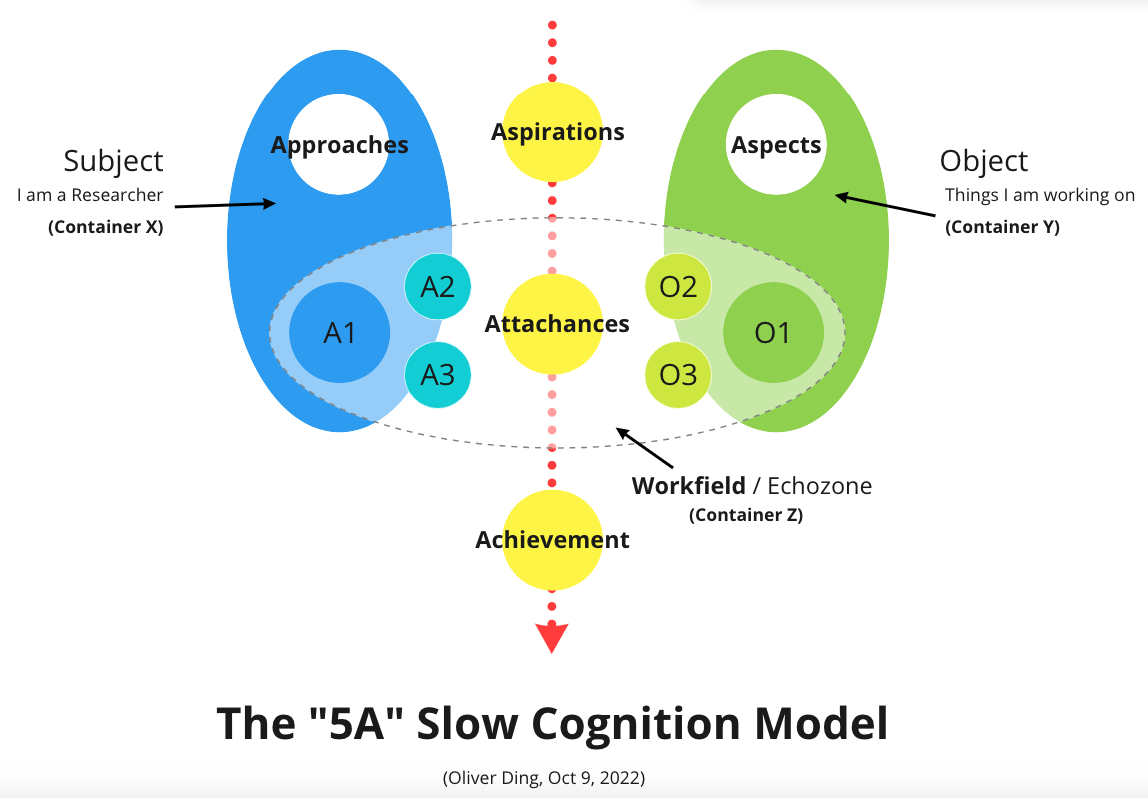
For more details, you can explore The "5A" Slow Cognition Model.
4. Thematic Exploration Panel
The diagram also includes a tool called the Thematic Exploration Panel. By arranging items from the "Aspirations - Approaches - Aspects" categories, this panel can generate creative themes for research and reflection.
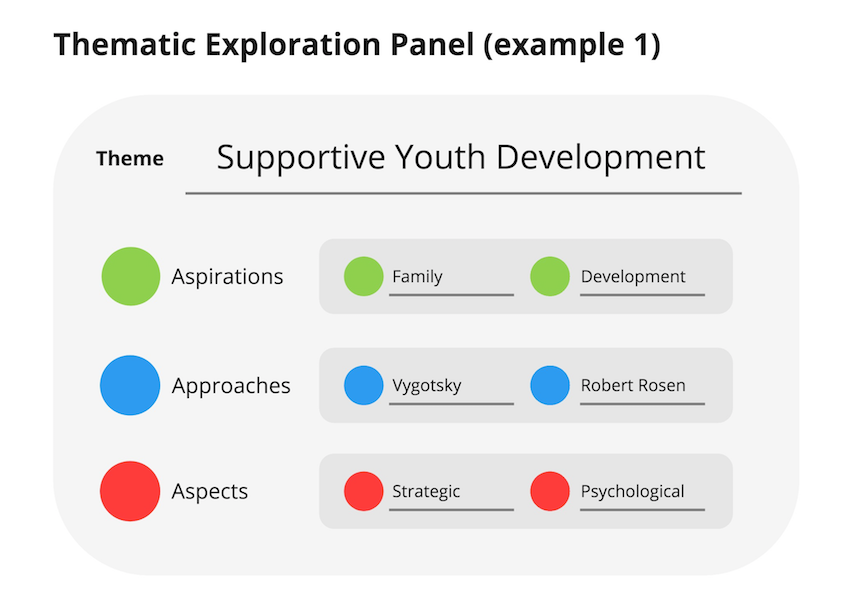
Three examples of these themes are provided in the diagram.
5. Expanding Beyond Traditional Activity Theory
The 18 approaches I've selected are based on my perspective and include some that extend beyond traditional Activity Theory.
For instance, I chose Alfred Schutz's approach for this tool because I expanded his concept of the "World of Working" into the "World of Activity", which has become central to my approach to Creative Life.
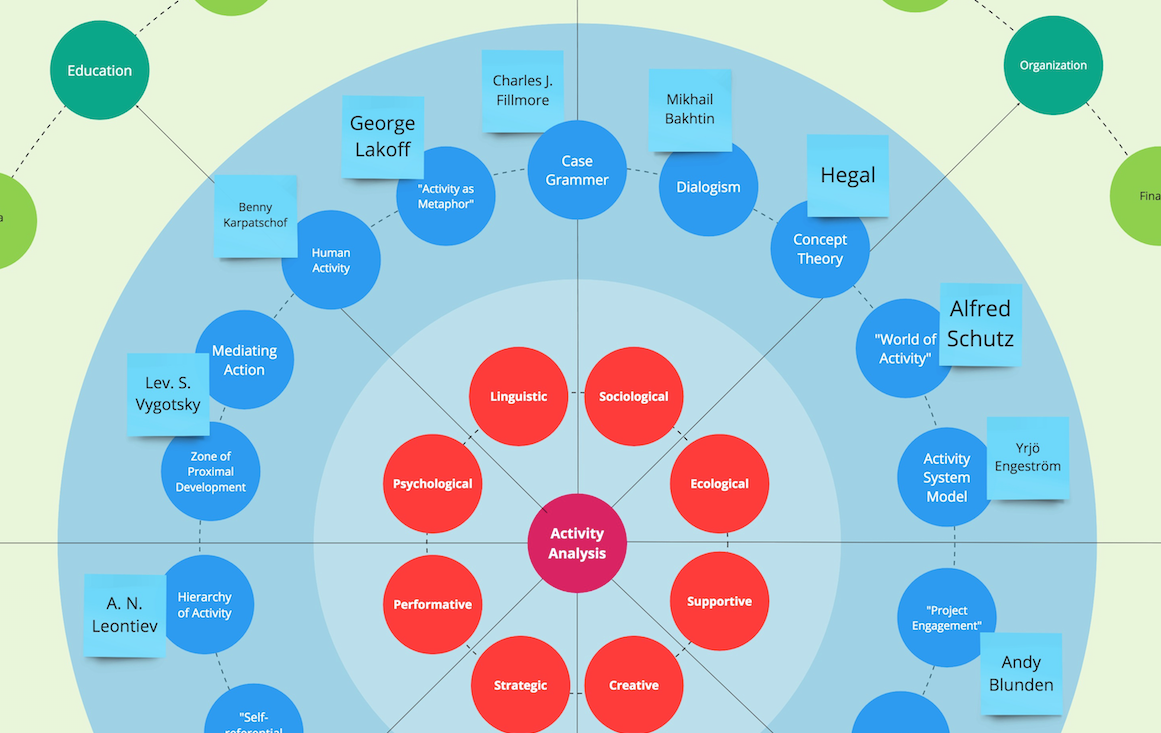
I also adopted Robert Rosen's Anticipatory System theory and connected it with Activity Theory, resulting in the Anticipatory Activity System (AAS) framework. This framework was applied in 2022 to study Advanced Life Strategy.
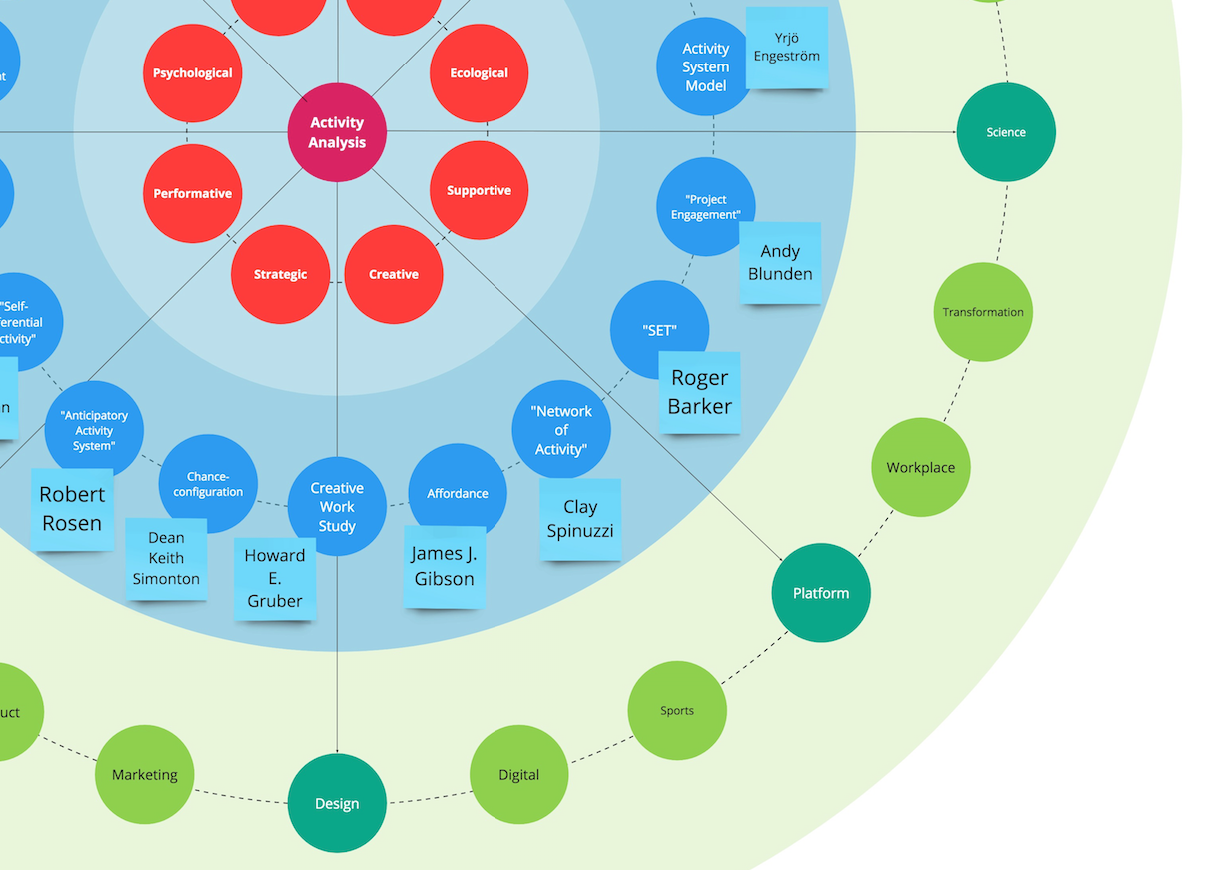
As such, this tool is not just for studying "Activity Theory", but "human activity" and "social life," reflecting the broader mission of the Activity Analysis Center.
I look forward to hearing your thoughts and am happy to discuss this further if you're interested.
v1: August 31, 2024
I decided to stop the Applied Activity Theory project in 2025.
